Court Upholds iGaming Ontario Model, Dismisses Kahnawà:ke Challenge
The Ontario Superior Court has dismissed the challenge brought by the Mohawk Council of Kahnawà:ke, affirming the legality of the gaming model operated by iGaming Ontario (iGO). The court ruled that iGO’s framework for managing the gaming industry in Ontario aligns with the provisions of the Criminal Code of Canada.
Court Sides with iGO
"We have always been confident in our model and are pleased that the court has ruled in our favour, ensuring that Ontarians can continue to play with confidence in our regulated iGaming market," said Martha Otton, Executive Director of iGaming Ontario, in an official statement. "Ontario’s model meets the requirements and contributes to the public good by protecting players, their data, and their funds. It also supports funding for priority public services in Ontario and promotes economic development by creating well-paid, high-tech jobs."
Since April 4, 2022, iGaming Ontario has overseen online gaming and sports betting in Ontario. The court’s ruling validated iGO’s gaming model in response to a challenge filed by Kahnawà:ke in November 2022, seven months after the province launched its regulated market. The challenge was heard in February of this year. The Mohawk Council of Kahnawà:ke argued that the provincial government’s changes to gaming management were "illegal and unconstitutional."
Interpretation of ‘Conduct and Manage’
The challenge focused on Ontario’s interpretation of Section 207 (1) of the Criminal Code, which allows provinces to regulate single-event sports betting. The Mohawk Council contended that Ontario permitted private-sector operators to "conduct and manage" gaming themselves, contrary to the law. Essentially, the Council sought a ruling that private operators, not iGO, were managing gaming in Ontario.
Justice Lisa Brownstone noted issues with the term “conduct and manage,” describing it as vague and not particularly helpful for legal interpretation. The Mohawk Council argued that a reasonable interpretation would show that Ontario delegates these duties to operators, who own their gaming websites, select their gaming offerings, decide on advertising, and retain most of the revenue. iGO, however, claimed it manages iGaming by controlling allowed games and operator conduct through contracts.
While the court acknowledged Kahnawà:ke’s standing to challenge the province, it rejected the Council’s argument. Justice Brownstone determined that Ontario retains “key decision-making power” over the iGaming scheme. Operators in Ontario’s market are not autonomous, as they cannot decide which games to offer and are restricted in areas like data usage, subcontracting, advertising, customer care, and responsible gaming.
On Monday, iGO stated, “In dismissing the application brought forward by the Mohawk Council of Kahnawà:ke, the Superior Court found that iGaming Ontario is the ‘operating mind’ behind Ontario’s competitive iGaming market in accordance with the conduct and manage requirements of the Criminal Code.”
Kahnawà:ke’s Concerns
The Mohawk Council of Kahnawà:ke argued that its legal challenge was a last resort after unsuccessful attempts to engage in dialogue with government officials. The Council has been involved in the online gaming industry for 25 years, licensing operators on behalf of the Mohawks of Kahnawà:ke. It opposed Bill C-218, the legislation introducing single-event sports betting, which led to Ontario’s regulated market.
Kahnawà:ke claimed the bill “changed the iGaming/sports betting landscape to the detriment of Indigenous People” and that the market framework “disregards the expertise and rights of First Nations to operate and regulate safe and responsible gaming.” In opposition to Ontario’s new market, the Mohawk Council ceased the operations of its subsidiary, Mohawk Online Limited, within the province.


DeborahTheMarvellous I'm really impressed with WinSpirit's new VIP program! The tournaments sound exciting, and it's great to see a casino actually listening to what their players want. Can't wait to see what they have planned next.
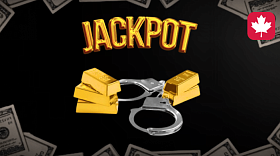

Parkerroberts This is a perfect example of why self-exclusion programs exist. They’re there to help people stay away from gambling. Trying to bypass them not only defeats the purpose but can lead to serious trouble like this.


Donaldbetty It's concerning to see such young individuals involved in large-scale cyber attacks. This shows the importance of investing in cybersecurity education and preventive measures from a young age. Hopefully, the authorities can get to the bottom of this and prevent future incidents.
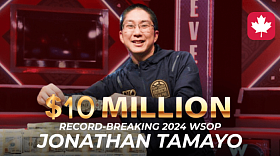

DonaldTheXtraordinary Wow, Jonathan Tamayo's win is incredible! But I totally agree with the conclusion. Poker requires so much skill and dedication. I’ve seen too many friends lose big trying to chase these rare wins. Slots are definitely more my speed – simple and fun!


HelenTheLoyal Wow, what an incredible win for Monica Bouma! It's true that the odds of hitting such a jackpot are insanely low, but it’s stories like these that keep people coming back. Congrats to her, though I'll stick to my smaller bingo games for fun.
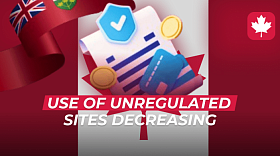

HelenTheAmbitious It's great to see that Ontario is cracking down on unregulated gaming sites, but lowering the RTP to 85% feels like a sneaky way to take more from players. Regulation should mean better protection, not just more ways for the house to win.
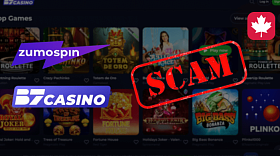

CrazyDaniel Well, what can I say, guys, here's your trust for you. Instead of 96%, now it's 94% RTP.


ParkerSusan7 It's really disappointing to see someone with Drake's influence promoting gambling like this. Young fans might follow his lead without realizing the risks involved.


WilliamTheTenacious These new slots of yours are just another way to squeeze the last penny out of players' pockets. So where is the innovation here? Just beautifully drawn pictures and promises of big wins.


SandraTheXtraordinary Excited to see Wazdan's games coming to Fitzdares, but the reduced RTP is a bit concerning. Hope the gameplay still stays fun and rewarding!


CharlesTheLuminous Excited to see ODDSworks expanding in Ontario! Their games are top-notch, but I hope the lower RTP doesn't make it too hard to win.


RuthTheXtraordinary I can't believe how generous Nolimit City is with this tournament! 500 free spins and an iPhone 15 Plus for the winner? Count me in!







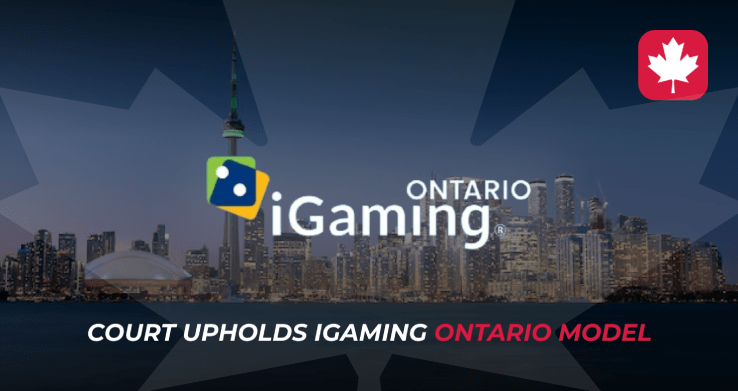











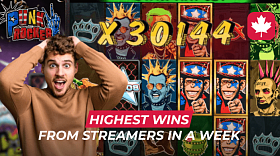






Justice Brownstone’s remarks on the ambiguity of “conduct and manage” are interesting. It’s clear that the legal framework around gaming needs more precise definitions to avoid such disputes. This case might prompt legislators to clarify the language in the Criminal Code for future reference.
It’s reassuring to know that iGO’s framework is validated. The focus on player protection and responsible gaming is essential. Let’s hope iGO continues to prioritize these aspects while fostering a competitive and fair gaming market in
While the court’s decision is disappointing, it highlights a need for greater dialogue and collaboration with Indigenous communities. The expertise and rights of First Nations in the gaming industry shouldn’t be overlooked. There needs to be a path forward that includes and respects their contributions.
I’m glad to see the court uphold iGaming Ontario's model. It’s crucial to have a regulated environment that ensures player safety and contributes to the economy. Hopefully, this ruling will put an end to the uncertainty and allow the market to keep growing responsibly.